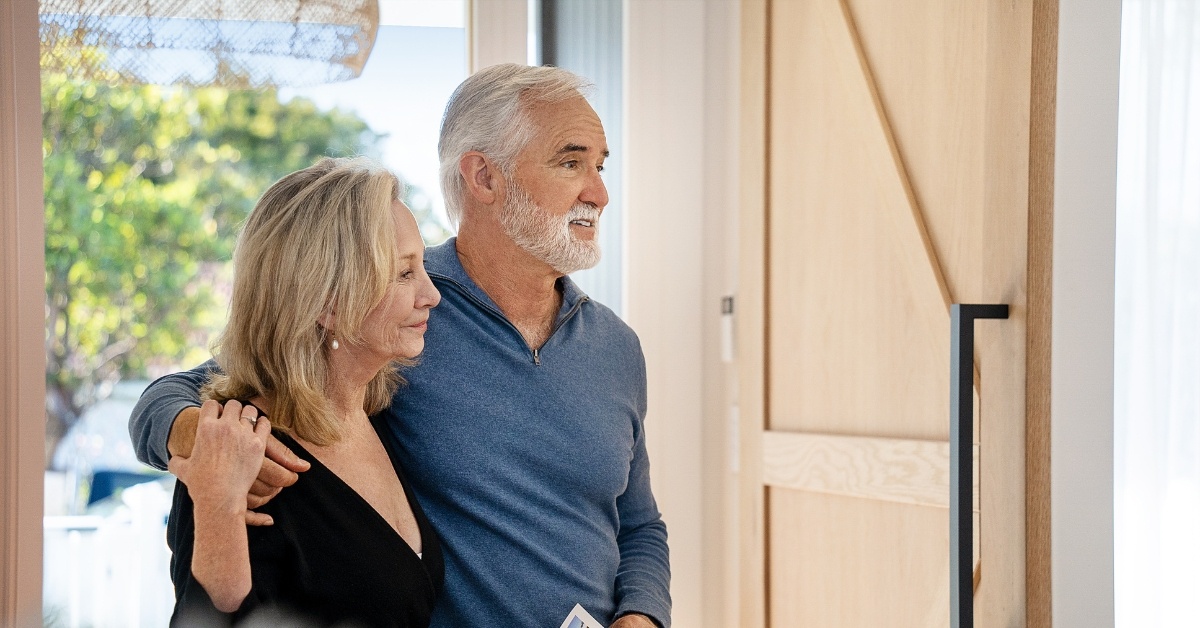Buying Property for Retirement: Planning for the Future

With retirement comes the opportunity to start a new chapter and a chance to find the right property to call home.
Buying a new home in retirement means you can live exactly how you want. It's not just about finding a house; it's about creating your own piece of paradise where you can enjoy every moment of this exciting phase.
In this article, we'll explore the key factors to consider when purchasing property for retirement and discuss financial planning strategies to secure your future.
Understanding your budget and goals
Buying a house in retirement is a significant decision that requires careful consideration of your goals and financial situation. Here are some tips to help you navigate this important milestone:
- Define Your Goals: Start by getting clear on what you want in your next property. Consider factors such as location, size, amenities, and budget. Think about your lifestyle preferences and long-term needs to ensure that the property you choose aligns with your goals and aspirations.
- Assess Your Financial Situation: Take stock of your current financial status, including your income, savings, investments, and debt. Determine how much you can comfortably afford to spend on a retirement home while still maintaining your desired standard of living. Consider factors such as ongoing maintenance costs, property taxes, and homeowners' insurance premiums when setting your budget.
- Create a Realistic Budget: Develop a detailed budget that accounts for all of your expenses, including housing costs, utilities, groceries, healthcare, and leisure activities. Be sure to factor in any potential changes in your income or expenses during retirement. Understanding the costs of real estate will help you make informed decisions about the type of property you can afford and how much you can comfortably spend.
- Explore Financing Options: Research different home loans available for retirement homebuyers, such as traditional mortgages, reverse mortgages, or home equity loans. Be sure to shop around and compare interest rates, terms, and fees from multiple lenders to ensure you get the best deal possible.
- Plan for the Long-term: It's impossible to predict the future when it comes to your health. However, you'll want to consider how your needs may change as you get older. Look for homes with features that will accommodate your changing needs, such as single-story layouts, wide doorways, and grab bars in the bathroom. Investing in a home that can support you throughout your retirement years will provide peace of mind and security for the future.
Choosing the right location
The right location can significantly impact your quality of life during retirement. Consider factors such as climate, proximity to healthcare facilities and local amenities including shopping centres and public transport, and access to recreational activities when selecting a retirement property.
Furthermore, consider the lifestyle opportunities available in the surrounding area, such as dining, shopping, entertainment, and cultural attractions. Access to these amenities can enhance your retirement experience, fostering social connections and personal fulfillment.
Exploring retirement housing options
Once you've mapped out your desires and needs for your golden years, it's time to think about the type of property you want. Retirees have an array of choices, each with its own set of advantages and drawbacks.
- Option 1: Downsizing
If you presently own a home, downsizing might be on your radar to opt for something smaller and easier to manage. This move could leverage your home equity for a more affordable dwelling and potentially bolster your retirement income. Plus, downsizing could mean fewer stairs or more senior-friendly amenities to suit your evolving needs. - Option 2: Expanding/renovating current home
Many retirees choose to stay put in their current abode, making modifications over time to accommodate their changing lifestyle. For example, expanding the home to add more rooms, or even even renovating to include senior-friendly features such as grab bars or wheelchair ramps. However, be mindful of rising upkeep expenses and retrofitting costs. - Option 3: Retirement Residence
For some seniors, purchasing a home or apartment within a retirement village or over-50s lifestyle community may better align with their lifestyle and financial circumstances. This option offers the convenience of reduced maintenance responsibilities and provides enhanced mobility alongside access to amenities and recreational facilities. Furthermore, there are many housing packages available to accommodate diverse preferences and budgets. - Option 4: Renting a home or apartment
If homeownership isn't in the cards, renting a house may offer a more flexible alternative. Whether a house or apartment, renting provides the freedom to choose a living space that suits your needs without the long-term commitment of owning. However, keep in mind that rental arrangements can subject you to price hikes or eviction notices. Unlike owning a property, renting lacks the stability of locking in a fixed mortgage payment with favourable terms.
Understanding tax implications and exemptions
For retirees purchasing property in Australia, navigating tax implications and exemptions is crucial. Here are some things to consider:
- Capital Gains Tax (CGT): Retirees typically pay CGT when selling property unless exempt. Exemptions include owning the property before September 20, 1985, selling through a retirement fund during the pension phase, or using the six-year rule for selling a primary residence.
- Investment Property and Shares: CGT applies to investment properties and shares unless owned by a retirement fund. Selling shares or property may incur CGT unless sold through a retirement fund or owned before September 20, 1985.
- SMSF Property Purchase: If the property is bought through a Self-Managed Super Fund (SMSF) and sold after retirement, it might be exempt from CGT. However, this comes with risks like loan repayments, difficulty cancelling arrangements, and restrictions on property modifications.
- Other Exemptions: Retirees may qualify for CGT exemptions beyond age-related factors, such as the six-year rule for a primary residence, discounts for long-term asset ownership, and exemptions for assets acquired before September 20, 1985.
Buying property for retirement is a significant decision that requires careful planning and consideration. By choosing the right location, engaging in strategic financial planning, and thinking about your long-term needs, you can ensure a comfortable and fulfilling retirement that matches your lifestyle. Take the time to explore your options and consult with an experienced real estate agent who can help you make informed decisions that set you up for success in your retirement years.
With retirement comes the opportunity to start a new chapter
Find the right property to call home
DISCLAIMER - The information provided is for guidance and informational purposes only and does not replace independent business, legal and financial advice which we strongly recommend. Whilst the information is considered true and correct at the date of publication, changes in circumstances after the time of publication may impact the accuracy of the information provided. LJ Hooker will not accept responsibility or liability for any reliance on the blog information, including but not limited to, the accuracy, currency or completeness of any information or links.
Share


